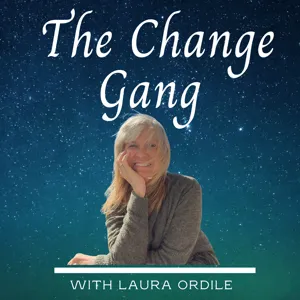Podcast Summary
Understanding Snowstorms on the East Coast: Researchers are using advanced technology to study snowstorms on the East Coast to make weather forecasts more specific and minimize disruptions.
Researchers are using advanced technology to study snowstorms in the East Coast region of the United States, as these storms can significantly impact populated areas and our weather forecasts can still be quite broad. The "Impacts" research project, led by Lynn McMurdie at the University of Washington, aims to make forecasts more specific by understanding the microphysics and precipitation of Atlantic Coast threatening snowstorms. This research is important because precise weather forecasts can help minimize disruptions and ensure public safety. The last time a study like this was conducted was around 30 years ago, and technology has advanced significantly since then. So, NPR's Nell Greenfield Boyce joined the researchers on a research plane to learn more about their work and the tiny goings-on that determine whether a cloud will drop a light snowfall or a heavy blizzard.
Apple Card rewards and snow band mysteries: Apple Card offers 3%, 2%, and 1% cashback on different purchases, while scientists are studying snow bands in weather patterns to improve forecasts
Apple Card offers different cashback percentages for various purchases. You can earn 3% daily cash on purchases made with Apple, 2% on other Apple Card with Apple Pay purchases, and 1% on purchases made with the titanium Apple Card or virtual card number. Meanwhile, I shared a personal story about my fear of flying and an experience I had at NASA's Wallops flight facility. Researchers there are trying to understand the phenomenon of snow bands in weather patterns, which appear as bright streaks on radar maps. These bands are believed to contain a significant amount of snow, but scientists don't fully understand what causes them or what it means for forecasts. To learn more, they plan to fly through the bands in a research campaign. In summary, Apple Card rewards users differently for their purchases, and scientists are working to unravel the mysteries behind snow bands in weather patterns.
Flying in a research plane for weather studies: A turbulent journey filled with intense focus and crucial data collection: Flying in a research plane for weather studies is a turbulent experience filled with intense focus and crucial data collection for understanding weather patterns and predicting future events.
Flying on a research plane for weather studies involves working in a stripped-down cabin filled with researchers intensely focused on their data. The environment is loud and requires constant ear protection. During the flight, researchers deploy sensors into the air to gather data on various weather conditions such as temperature, pressure, and wind speed. The experience can be turbulent, with researchers bracing for intense updrafts and downdrafts. For instance, during a particularly intense snowstorm, researchers felt significant turbulence that caused laptops to fly open. Despite the challenges, the data collected during these flights is crucial for understanding weather patterns and predicting future weather events.
Exploring the intricacies of winter storms through advanced technology: Scientists used advanced technology to observe winter storms from various perspectives, revealing crucial insights into their structures and elements' interactions.
Scientists have the power to explore the intricacies of clouds in real-time through advanced technology. This was exemplified during a research project where scientists observed clouds from various perspectives - inside, above, and below. From inside the cloud, they could see the anatomy of the clouds as a slideshow of images, revealing various layers, ice crystals, and even supercooled liquid water. These discoveries were crucial for understanding the storm's structures and how different elements interacted. The project, which ran for three winters, aimed to study the full range of East Coast winter storms, from heavy snowstorms to regular rainstorms. The researchers used multiple planes, one for observing from inside the cloud and another for studying from above at high altitudes. This comprehensive study provided valuable insights into the complex world of winter storms and their various forms.
The Importance of Weather Research: Weather research plays a crucial role in our daily lives and future forecasts, requiring dedication and even heroism from scientists to gather data and make discoveries.
Weather research is a crucial and ongoing field of study that can have significant impacts on our daily lives and future weather forecasts. Researchers are working tirelessly to better understand storms and weather patterns, which can be particularly important for coastal regions. Despite the common perception that talking about the weather is mundane, the science behind it is anything but. In fact, it requires dedication and even heroism to face the elements and gather data for the greater good. The next time you find yourself discussing the weather, remember the important role that research plays in helping us cope with and prepare for the unpredictable. And who knows, your conversation might just lead to a new discovery or innovation in the world of weather science.





